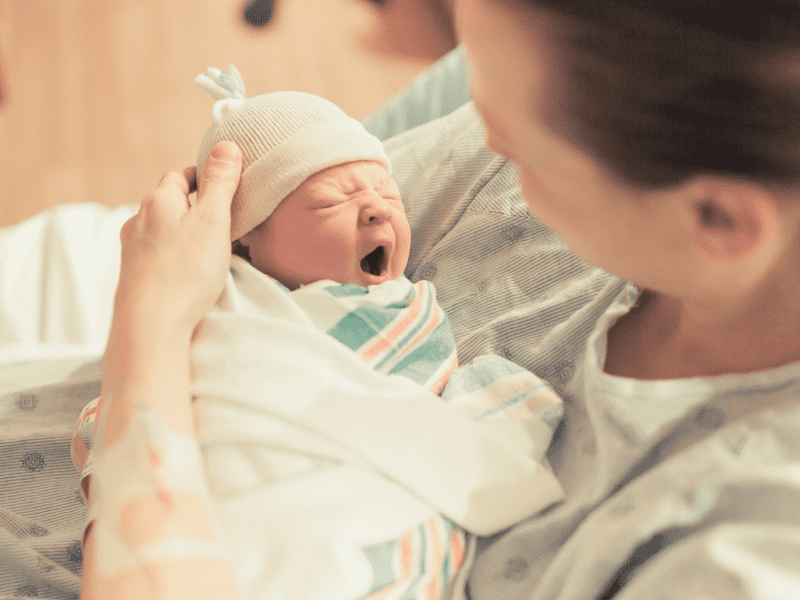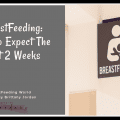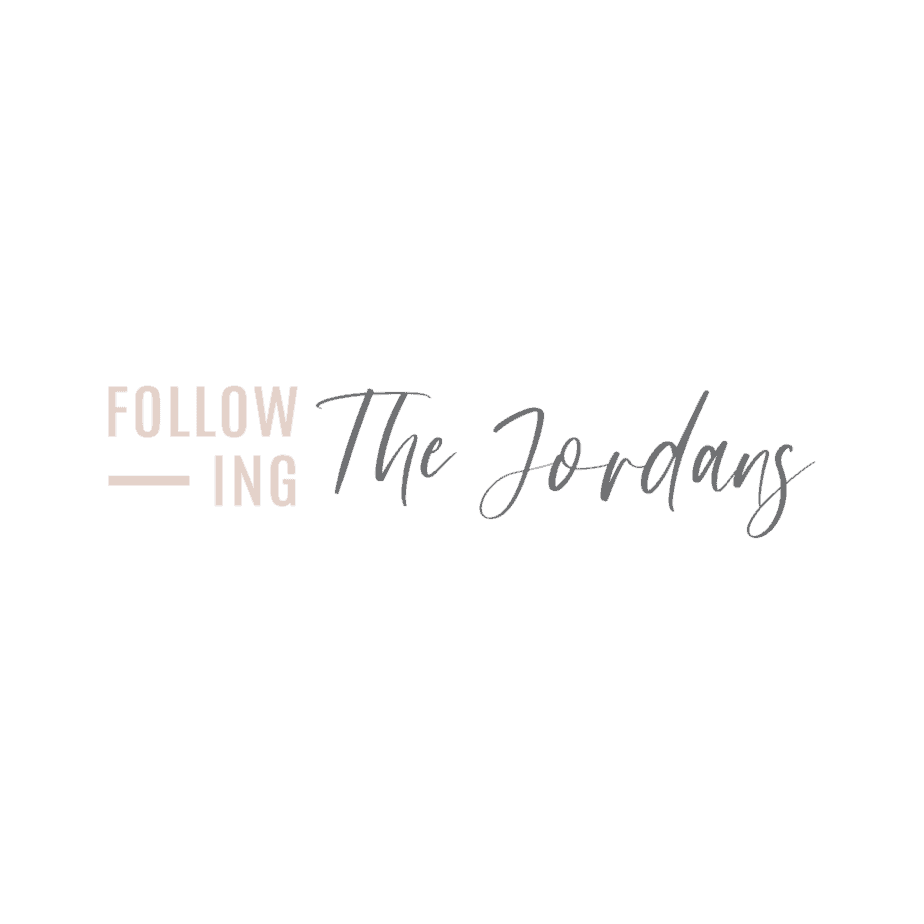21 Postpartum Questions You Really Wanted Answered!
You might think all of your questions are about pregnancy, but as soon as you have your baby, you’ll have tons of postpartum questions you need to be answered.
Is your body ever going to go back to normal? Yes! Sort of.
Will you ever stop bleeding? You will!
Can you have a beer after having a baby? Probably so!
I know I had tons of postpartum questions; I made a list of them to ask my doctor. Navigating the new-to-you postpartum world is a bit scary at first and strange. Things are new, yet the same, so you have to figure out the new things in your life.
I felt the same way, so I wanted to answer all your postpartum questions you might have!
Pin this blog for later! ↓

21 Postpartum Questions

1. What Happens in My Body After I Give Birth?
One of the most common postpartum questions is what happens in your body after birth.
Giving birth is a serious time, and your body goes through a lot of changes. After your placenta comes out, you have a large wound inside of your uterus that needs to heal. At the same time, the uterus has to go back down to its normal size – hello, afterbirth pains! – while the lining sheds itself.
All of this heal comes out in the form of bleeding, and while it might be overwhelming at times, it is normal and to be expected during the healing process.
Not only does your uterus have a lot going on, you also have breasts to consider. Whether you want to breastfeed or not, your body naturally begins the process of making breast milk. If you don’t want to breastfeed, you have to take steps to dry up your milk.
This doesn’t feel good at all, trust me!
So, you have afterbirth pains, tons of bleeding, and boobs swelling up like footballs. What else could be happening in your body?
Hormones. Lots of hormones.
Your body rides on a hormonal high when you’re pregnant, but as soon as pregnancy is over, your hormones rapidly decrease. This often leads to crying often or overwhelming happiness. It’s also one of the causes of postpartum depression.
2. When Will The Bleeding Stop?
Bleeding postpartum is a normal part of giving birth; this is why you need those giant hospital pads and maxi pads. You bleed the most during the first and second week after delivery.
By six weeks postpartum, your bleeding should nearly subside. If it’s not gone, it will be quite light.
For most women who aren’t breastfeeding, their period returns six to eight weeks postpartum. However, for breastfeeding women, your period may not return for six months or longer!
3. What Red Flags Should I Watch for During my Postpartum Weeks?
In most cases, your healing goes over without a hitch, but at times, things go array, and it’s useful to know the red flags that something might be gone.
Here are some of the signs that you need to look out for that might indicate you need to talk to your doctor.
- You start to pass clots larger than a golfball.
- You soak pads within an hour.
- A fever develops.
- You start shaking.
- Your c-section incision starts to ooze and have pus.
- You notice redness and swelling around the incision site.
Understand how much bleeding is too much is a bit tricky. During the first few days, you’ll soak through the largest pads, especially immediately after birth. This is true no matter if you have a vaginal birth or a c-section.
It’s possible for you to pass a few clots the size of tangerines! Of course, you might freak out, but in the first 72 hours after birth, this isn’t uncommon.
Gushes of blood are normal for weeks, especially if you’re breastfeeding. However, after the first three to four days, filling a pad in under an hour is typically a sign of a problem.
4. How Do I Manage My Pain After Childbirth?
Managing your pain is an important part of your postpartum phase; you never want the pain to be too bad.
One of the easiest tricks you can try for managing pain is to sit on an ice pack or a frozen pad. This will decrease pain and swelling in your perineum. Taking an anti-inflammatory medications, such as ibuprofen, is typically all the pain medication you need unless you have a c-section.
If you have a c-section, your doctor will prescribe a stronger pain medication to be used throughout your recovery. It’s important to take those for the first several days to stay on top of the pain; after that, start to decrease them.
5. Will It Hurt When I Go to the Bathroom?
Going to the bathroom for the first time after birth is scary, and yes, urine burns a little after all the trauma. It’s not as painful as delivering a baby.
If you had stitches or a catheter, you might need a topical numbing spray for using the bathroom. Also, most hospitals provide you with a perineal spray bottle to clean your vaginal area instead of using toilet paper.
The first bowel movement after birth, especially if you had a c-section, can be painful. It may take several days for you to have a bowel movement, and it will feel scary. You might notice some abdominal discomfort – stool softeners really help with this!
6. When Can I Take a Shower?
Most hospitals allow mothers to take a shower quickly after birth. If you have a c-section, you’ll be able to take a shower as soon as you’re up and moving around.
Taking a shower after giving birth is one of my favorite things. Childbirth is rough, and there is something so comforting about taking a hot shower. It makes your body feel better.
7. When Can I Take a Bath?
Another one of the most common postpartum questions is when can you take a bath. If you have a vaginal birth, it’s safe to take a bath whenever you want. Many providers say it will help you with relaxing and healing.
If you have a c-section, you have to be more cautious. You need to wait until your incision heals, typically three to six weeks after delivery. Your doctor will give you the all clear when it’s safe.
Why do you have to wait?
Taking a bath increases the risk of developing an infection in your incision site. That’s the last thing you want!
8. When Can I Start Exercising Again?
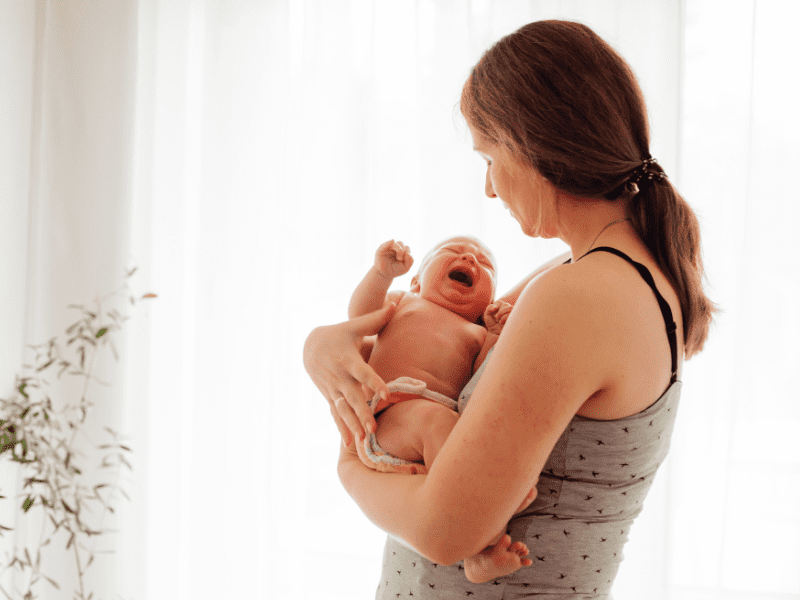
Generally, if you exercised throughout your pregnancy, it’s safe to start some light upper body exercises within two to three weeks. However, if you have a c-section or a complicated birth, it’s best to wait until your doctor gives you the all-clear between six to eight weeks postpartum.
This is one of those times that it’s always best to listen to your body. If you feel like it’s not time to start exercising, don’t force yourself.
9. When Can I Have Sex After Giving Birth?
Most women receive the all-clear to resume sexual intercourse at your six-week postpartum checkup. However, even if you have the go-ahead from your doctor, don’t be surprised if your sex drive decreases.
The lack of sleep combined with your postpartum hormone shifts typically causes a decrease in your libido. This is normal; don’t be surprised. Eventually, your sex drive will come back.
10. Can I Get Food Delivered to My Hospital?
Yes! You’ll likely feel starved after having birth, and while the hospital gives you food during your stay, many places deliver food. You also can get food delivered from most hospitals.
Make sure you ask before delivery to know all of your options. COVID restrictions may change what food can and cannot be delivered.
Remember, if you had a c-section, chances are you’ll be on a clear liquids diet until you pass gas to let the doctors know your digestive system is back in gear.
11. What Supplies Do I Need to Have at Home?
Before your baby arrives, it’s a good idea to have all the things you need, like a postpartum survival kit.
Here are a few things you definitely want to have at home.
- Maxi Pads
- Large Underwear or Mesh Panties
- Tuck Pads
- Perineum Spray
- Peri Bottle
- Stool Softener
- Nursing Bras
- Nipple Cream
12. What Can I Do to Help with Constipation?
Constipation happens after childbirth for various reasons, but there are a few things you can do.
First, take a stool softener! That reduces how much you need to strain; you don’t want to have to strain at all. Second, make sure you include plenty of fiber-rich foods. These foods help keep your bowel movements regular.
Also, make sure you drink plenty of water, and some mothers swear that coffee in the morning helps them stay regular. That’s a bonus!
13. Does It Matter What Clothes I Wear?
You might not realize this, but after you have your baby, you’re free to change your clothes and stop wearing the hospital gown. I always wanted to put on something aside from those ugly blue or pink gowns.
It helps you feel more human after a long day.
However, not everything is comfortable to be worn in the hospital. Instead, postpartum gowns, leggings and t-shirts, nightgowns, or comfortable and soft shorts and shirts are ideal. If you have a c-section, make sure nothing is pressing on the incision; it should sit up higher on your stomach.
14. Why Should I Use a Sitz Bath?
If you notice a little plastic tub in your hospital room, chances are it’s a sitz bath, and it fits right into your toilet. I had no idea what it was, so this was one of my first postpartum questions!
You fill up the sitz bath with warm water and sit down. It really helps with relief from stitches, but it also helps keep the area clean, preventing infections. You can even add herbal sitz bath salts to help your bottom heal faster!
15. When Will My Stitches Dissolve?
If you have a vaginal birth, you may have stitches, depending on if you tear or not. Most stitches dissolve within one to two weeks, but be sure to discuss with your doctor
16. What Happens at My 6-Week Postpartum Checkup?
Every doctor is different, but they all look for the same things.
When you go for your six-week check-up, your doctor will talk to you about your experience and how you feel. They’ll want to check your belly to make sure your uterus is back to its normal size.
Many times, your doctor will want a vaginal exam and a Pap smear.
Expect a lot of questions to assess your mental health. If you feel signs of postpartum depression, let them know! They won’t be mad or upset; it’s their job to make sure you heal well, mentally and physically.
Feel free to bring your baby. Most practitioners love to see the little babies they delivered.
17. Will My Linea Nigra Go Away?
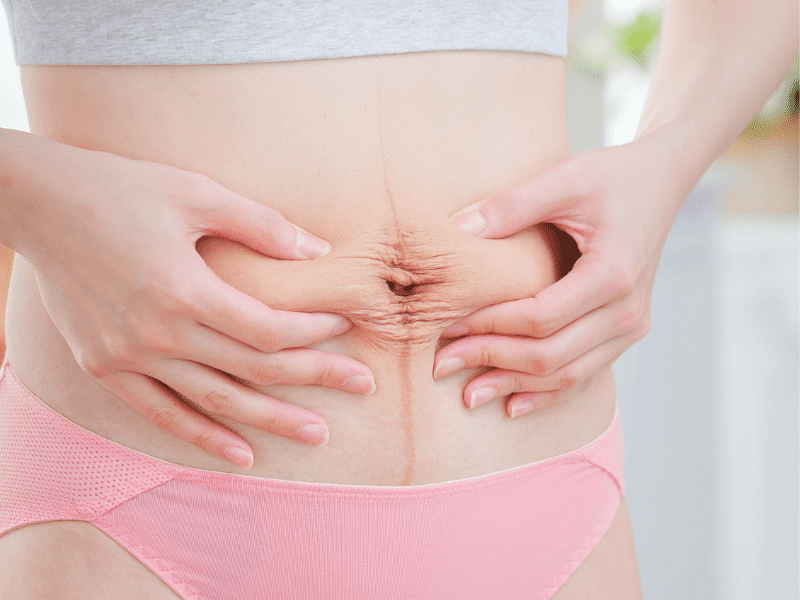
If you have a linea nigra during pregnancy, one of your postpartum questions might be if it’s going to go away.
That’s hard to answer because it’s different for every woman. For most women, their linea nigra goes away, but it might take several months. However, some women have it forever!
18. When Will My Milk Arrive After Birth?
Every woman is different, so when your milk arrives after birth is different for everyone. Most women say their milk arrives within the first few days after delivery, but for some, it could as short as 48 hours after birth.
For others, it might take up to a week.
All women notice a difference when their milk arrives. Your breasts suddenly feel fuller, and you might notice some pain. Engorgement is uncomfortable!
19. If I Don’t Breastfeed, What Should I Expect?
If you don’t plan to breastfeed, you might wonder what to expect. Your breasts will become engorged like they would if you were breastfeeding. This can be painful, and you’ll want to ease the pain and discomfort.
There are a few things you can do.
For example, one of the most common tricks to dry up milk after childbirth is to place cabbage leaves in your bra. Yes, really – the cabbage at the grocery store!
You also can try hot showers; this helps the discomfort. Taking an over the counter decongestant also has components that will help your supply dry up.
This process takes several days unfortunately!
20. What Should I Do If I Start Feeling Depressed?
It’s normal to feel a bit sad or hormonal after giving birth. Remember, your body experienced a rapid decrease in hormones, leading to periods of sadness or crying.
However, if you notice your feelings continue beyond two to three weeks, and you feel depressed or experience a lot of anger, it’s time to talk to your doctor.
Call your OBGYN and tell them you think you have postpartum depression. They’ll quickly schedule you an appointment, and you’ll talk about what you’re experiencing. Then, your doctor will prescribe you medication.
It makes you feel a ton better – take it! There is no shame in seeking help for your postpartum depression.
Related: How I Knew I Had PPD: A Mom’s Real Life Experience
21. Can You Have Alcohol After Birth?
Doctors recommend you wait for several hours after a vaginal birth and 12 to 24 hours after a c-section, but alcohol is acceptable. If you want a celebratory toast of champagne, go for it!
Remember, alcohol interacts with pain medication, so you need to be careful, especially if you had a c-section. If you’re breastfeeding, it is safe to consume alcohol in reasonable amounts.
Now that your baby is earthside, you probably have a lot of postpartum questions. If you have any significant concerns, make sure you call your doctor – they are your best resource!


